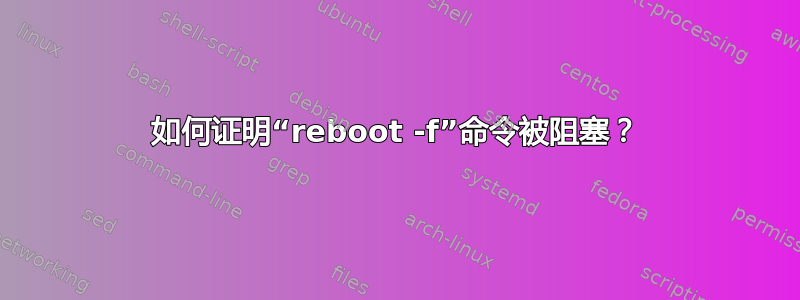
在为嵌入式 Linux 设备编写 shell 脚本时,我的大学倾向于在reboot/reboot -f命令后添加无限循环,以确保脚本的后面部分在重新启动期间不会运行。但是我想知道这是否reboot -f实际上是一个阻塞命令。
我试过了reboot; touch test,并且test创建了。因此,正常reboot应该是非阻塞的。但是,运行reboot -f ; touch test命令不会创建test。有些人可能会争辩说,touch或者 shell 可能在 touch` 执行之前就被杀死了,所以这不是充分的证据。
实际上是rebootsysvinit 可执行文件的符号链接halt。
有人可以给出证明或解释吗?谢谢。
答案1
根据您的操作系统,reboot可能会有很大不同。对我来说,reboot是 systemctl 的符号链接:
ls -la /sbin/reboot
lrwxrwxrwx 1 root root 14 maj 3 13:30 /sbin/reboot -> /bin/systemctl
在这种情况下,它相当于systemctl rebootwhich相当于systemctl start reboot.target --job-mode=replace-irreversibly --no-block(参见systemctl的手册页)。
-force在这种情况下,只会加速重新启动的过程,可能会导致 shell 在文件被触及之前被终止。
如果你想阻止它,你可以尝试类似的方法systemctl start reboot.target --job-mode=replace-irreversibly。但我不确定是否可以像这样实现阻塞重启。
不过,如果您处于非 systemd 环境中,reboot则工作方式可能会有所不同。
我认为,无限循环不是这里最干净的解决方案,您可以exit在重新启动后执行。


